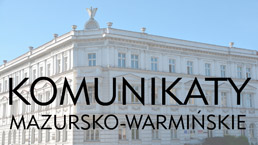Current issue
Online first
Special issues
Archive
About the Journal
Editorial Board
Editorial Council
Reviewers
Editorial guidelines
Publication ethics
Guidelines for reviewing
Remarks on “ghostwriting”
Copyrights and Open Access rule
GDPR Privacy Notice – for the authors of articles sent for publication in the "Komunikaty Mazursko-Warmińskie ("Masuro-Warmian Bulletin")
Contact
Price list
List of Frombork citizens using the city wells for a fee in 1639
1
Olsztyn, Polska
Submission date: 2021-11-03
Acceptance date: 2021-12-22
Online publication date: 2022-08-18
Publication date: 2022-08-18
KMW 2022;317(2):252-266
KEYWORDS
TOPICS
ABSTRACT
The problem with uninterrupted access to drinking water is an important issue in the everyday life of the inhabitants of medieval and modern cities. It is especially significant in terms of preventing epidemics that have often plagued urban centers, where the level of hygiene left much to be desired. The oldest preserved Frombork city ledger from 1630-1645 draws attention to six pages with a list of six city wells with personal details of people using them for a fee in 1639. This list, rarely found in city documents, illustrates the activities of the Frombork authorities in the second quarter of the 17th century, during the difficult times of the Swedish invasion and the war of 1626-1635 that echoed through the city and the whole of Warmia, and even after the end of the wartime turmoil. This source is an illustration of the degree of municipal self-reliance and the responsible actions of Frombork's authorities and its citizens for the common good: caring for the improvement of hygiene and health of the inhabitants.
Share
RELATED ARTICLE
We process personal data collected when visiting the website. The function of obtaining information about users and their behavior is carried out by voluntarily entered information in forms and saving cookies in end devices. Data, including cookies, are used to provide services, improve the user experience and to analyze the traffic in accordance with the Privacy policy. Data are also collected and processed by Google Analytics tool (more).
You can change cookies settings in your browser. Restricted use of cookies in the browser configuration may affect some functionalities of the website.
You can change cookies settings in your browser. Restricted use of cookies in the browser configuration may affect some functionalities of the website.




